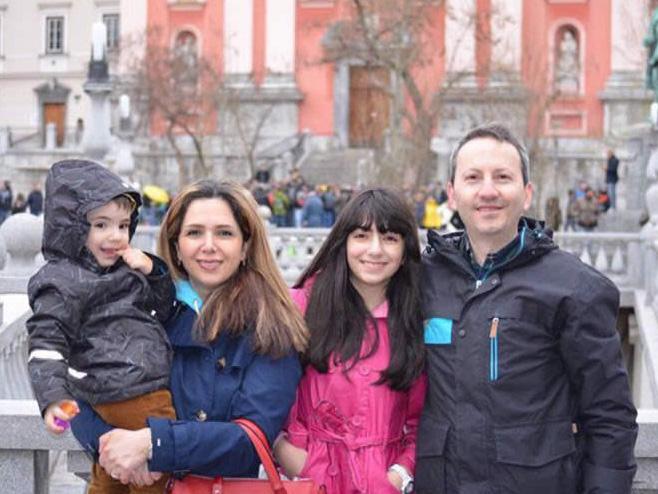Instead of freeing Nazanin Zaghari-Ratcliffe at Christmas, Iran upheld its death sentence for another prisoner
The Islamic Republic’s status as a pariah state must be restored – a boycott by travellers on human rights grounds could kick-start wider sanctions and a rethink on the nuclear deal


Your support helps us to tell the story
From reproductive rights to climate change to Big Tech, The Independent is on the ground when the story is developing. Whether it's investigating the financials of Elon Musk's pro-Trump PAC or producing our latest documentary, 'The A Word', which shines a light on the American women fighting for reproductive rights, we know how important it is to parse out the facts from the messaging.
At such a critical moment in US history, we need reporters on the ground. Your donation allows us to keep sending journalists to speak to both sides of the story.
The Independent is trusted by Americans across the entire political spectrum. And unlike many other quality news outlets, we choose not to lock Americans out of our reporting and analysis with paywalls. We believe quality journalism should be available to everyone, paid for by those who can afford it.
Your support makes all the difference.“We are sitting by the phone hoping,” Richard Ratcliffe said over the weekend – the hope was that his wife, Nazanin, a charity worker imprisoned since April 2016 by the Iranian government, might be released by Christmas Day.
Unsurprisingly, instead of going all mushy and Christmassy, the Islamic Republic stayed true to form – immoral, ruthless and uncompromising.
The Supreme Leader was never going to change his cloaks for a Santa outfit, filling stockings with freedom and long-denied human rights.
The notorious Judge Abolghassem Salavati, who handed Nazanin her five-year sentence, was never going to be singing carols outside a Tehran metro station or, better, handing himself over to international authorities to be investigated and possibly prosecuted for a history of human rights abuses that have got him banned from entering the EU.
Now Iran’s Supreme Court has upheld the death sentence issued for the Sweden-based scientist Ahmadreza Djalali.
Like Nazanin, Djalali has been detained arbitrarily since April 2016. He stands accused of having worked with the Israelis to kill four Iranian nuclear scientists between 2010 and 2012.
(A scientist who has worked with Mossad to kill Iranians scientists would have to have a serious screw loose to take up an invitation from Tehran University and leave his wife and two children in Stockholm to risk certain death.)
The EU and the UK must redraw their view of Iran, as they must of Saudi Arabia. These countries will be better friends to the West if pressure is brought on them to change – not the con of a change that Saudi Arabia is experiencing now but the encouragement of a spring of human rights.
Iran’s status as a pariah state must be restored – sadly it is only Donald Trump making this argument.
The EU and the UK can make it in a more intelligent manner: we cannot be doing business with a country that proposes to kill a family man and scientist who seems to have visited his country of birth, like Nazanin, in good if misplaced faith.
And Westerners can kick off cleverly targeted sanctions to hurt state agencies rather than the people – and a rethink on the nuclear deal – by ceasing travel to Iran. It may be a cool destination as few go there but its tourism industry is helping to normalise the brand of one of the world’s human rights offenders.
There is little point travelling to Iran and commenting on how charming and hospitable people are unless you’ve looked up the names of people like Reza Shahabi, Narges Mohammadi and Arash Sadeghi, unjustly imprisoned, innocent individuals in a country with no respect for due process.
Djalali has been denied a defence, prompting Amnesty International to say: “This is not only a shocking assault on the right to a fair trial but is also in utter disregard for Ahmadreza Djalali’s right to life. It is appalling that the Iranian authorities have deliberately denied Ahmadreza Djalali the right to a meaningful review of his conviction and sentence.”
There are reports that he has been tortured and has been subjected to a forced confession for the camera.
I recently wrote to my local MP Vince Cable about Aung Sang Syu Ki’s intransigence in the face of the Rohingya refugee crisis. Within weeks I received not only his reply but also the reply he received from the Foreign Office, signed by Boris Johnson.
I am going to write to him today to ask that he call on the Foreign Secretary to demand commuting of Ahmadreza Djalali’s sentence.
In November, 75 Nobel prize laureates called for him to be freed. Perhaps it’s time for leading scientists in the UK to start their own – Brian Cox, Robert Winston and others must also write to their MPs.
Djalali’s wife, Vida Mehrannia, told The Independent that her husband denies all the charges against him, not least having held up to 50 meetings with Mossad.
“I really don’t know how to cope,” she said. “They are dragging an innocent man to the noose. Somebody has to do something to stop this.”
Like Richard Ratcliffe, she is probably sitting by the phone, hoping.
Join our commenting forum
Join thought-provoking conversations, follow other Independent readers and see their replies
Comments